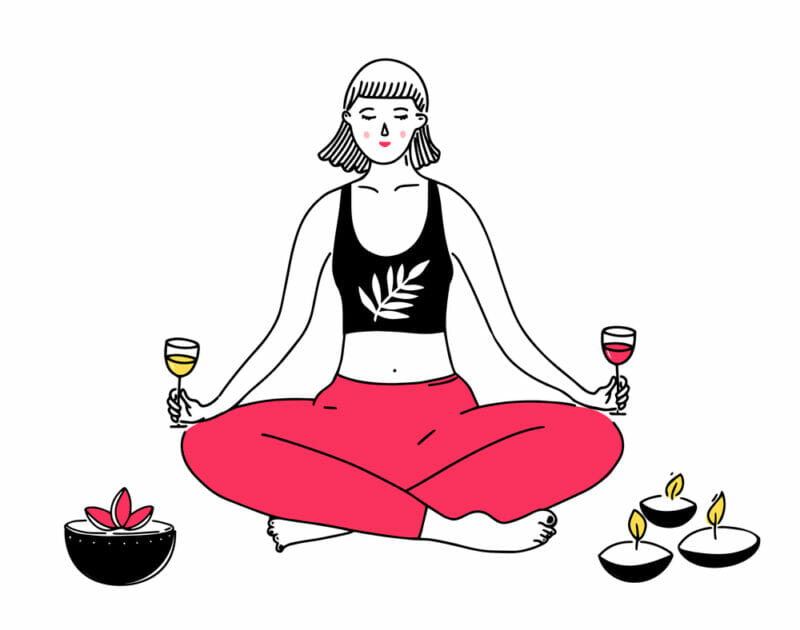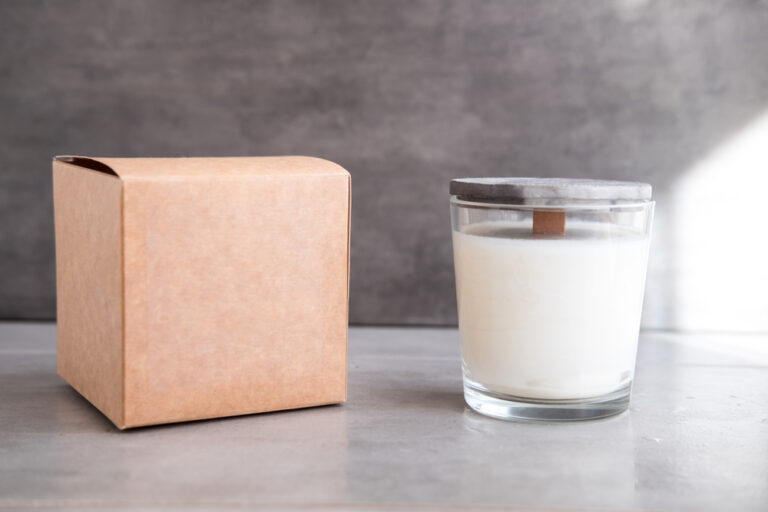Drunk Meditation and its Effectiveness
Meditation has been scientifically proven to have numerous health benefits, including reducing stress and anxiety. It is often considered a method of relaxation and calming.
This blog post aims to examine the impact of alcohol on meditation practice. Specifically, it will explore the effects of meditating while under the influence of alcohol.
Recently, I received a message on Facebook asking for advice on whether it is possible to meditate after drinking or even while drunk.
This raises the question: can one be drunk and still meditate effectively? Does alcohol aid or hinder the meditation practice? Can it facilitate reaching a meditative state or are the two incompatible?
What is Drunk Meditation
Do alcohol and meditation at the same time sound like a paradox?
Well, it seems that some sort of trend has developed around meditation and drinking in recent years, especially since meditation is becoming more popular in western countries.
Drunk meditation usually refers to a practice that combines drinking with meditation to achieve a deeper level of mindfulness and relaxation.
Is Drunk Meditation Acceptable from a Religious Perspective?
Someone in a state approaching drunkenness may feel confident and enabled, artificially so. However meditation is about facing reality, looking inside oneself to find an inner truth whereas alcohol is often used as an escape from reality.
Consumption of alcohol in Buddhist meditation is unsuitable since the fifth precept forbids the use of intoxicants, although to the community at large this is seen as similar to the Catholic edict of eating only fish on a Friday – a practice observed more in the exception than the rule.
As an example the population of Cambodia, where I lived for a while, is technically 90% Buddhist but the use of artificial stimulants, alcohol et al, would probably be about the same percentage of population.
Can Drunken Meditation Be Justified from a Spiritual Perspective?
Whatever the question, alcohol is never the answer.
This is a complete truth when it comes to meditation. While alcohol may relax our inhibitions and engender a state of openness, it also gives the illusion of calmness and peace of mind – but nevertheless, this is an illusion.
When we drink we can lose touch with reality – we may feel physically stronger, smarter, even happier to an extent – but these feelings are rarely justified by our true being, and maybe we feel we are able to meditate and see clearly into our thoughts just like some believe they are better vehicle drivers after a few drinks.
In actuality our concentration is affected, we become unfocused, our thoughts become unsound and our judgement becomes faulty. None of this is beneficial to the clear, sharp insight we need when we want to ground ourselves in the present moment.
Why Alcohol Can’t Be Mixed with Meditation
Drunk meditation does not exist for the following reasons:
- Meditation’s keen objective is to achieve mindfulness by paying close attention to breathing movements. Alcohol is the enemy of the human brain, making it blurred towards logical thinking. You can’t focus on breathing in a drunk state, so you can’t get the most out of meditation.
- Another purpose of mediation is to gain inner peace by controlling your feelings and thoughts. On the other hand, alcohol is a major factor in creating disturbing thoughts making a person chaotic from the inside. You can’t gain control over yourself when consuming alcohol.
- Alcohol makes a person feel dizzy by slowing down brain functioning and dampening the nervous system. For meditation, you need to be active and alert to gain concentration. If you try to meditate in a drunk state, there are chances you fall asleep
In fact, since meditation can effectively relieve stress and boost emotional well-being it should even be considered as an alternative to alcohol.
The health and wellness industry has a wide and varied selection of tools for people to use for personal growth. One such tool is meditation.
The meditative state in itself can bring feelings of physical and mental relaxation – combined with alcohol the subject may simply drop off to sleep!
Breath Space Meditation for Quitting Alcohol
It is now clear that meditation and alcohol are two opposite things and you cannot mix them. But what if a person is a regular drinker? Is mediation impossible for him? No, you can still practice it by using its different forms. Meditation also helps a person to quit the habit of drinking gradually.
There is a technique known as breathing space meditation that helps with mindful drinking. Such sessions are also short, like a few minutes, making it easy for anyone to practice. How does it help in quitting alcoholism? It suppresses the triggers that a person feels towards drinking and prevents them from consuming alcohol actually.
Steps for Effective Breath Space Meditation
Here are some easy steps to make your mind focused even if you are a victim of alcohol:
Step 1: Initially, you need to understand your feelings and concepts toward different stimuli. You must be genuine to gain insight into real thoughts without modifying them.
Step 2: Now you need to focus on breathing and it’s in and out movement.
Step 3: Now increase your attention scope towards your whole body. Pay attention to every part and its state. If you are feeling discomfort in any area, focus on it with breathing. Step by step increase the scope of attention towards your surroundings.
Vedic Meditation and Alcohol
Another effective way of quitting alcohol is practicing Vedic meditation. Why is it different or easier to adopt than other types of meditation?
In this meditation session, a teacher will help you achieve better mental health by increasing awareness and focus. The teacher will not directly dictate students to stop drinking; rather, he will focus on practicing Vedic twice daily. This approach makes the person feel free and results in rational thinking about life. With more awareness and better brain functioning, people observe reduced drinking.
Frequently Asked Questions
Q: How effective is meditation while being very drunk?
You cannot meditate in the true sense while being drunk as these are two opposite concepts. If meditation helps in having mindfulness then alcohol makes your mind fuzzy and less focused. So, it is just a myth that drinking aids in deep meditation.
Q: How long does one have to meditate in order to see positive effects?
There is no hard and fast rule for the frequency or duration of mediation required to see effective results, and the range also varies from person to person. Many studies suggest practicing at least 20 minutes of meditation sessions a day for 2 months. This is an average estimate, and different people respond uniquely to such sessions of mindfulness and focus. So, one must try various forms of meditation both long and short.
Q: Why is meditation good for alcohol?
Meditation helps you maintain mindfulness by improving your focus. On the other hand, consuming alcohol hurts the human brain, making it less focused and indulging in delusions. That is why, meditation is considered a good practice to eliminate the bad effects of alcohol as it aids in dealing with triggers towards consumption of alcohol in addiction.
Q: How does alcohol affect the mind?
Alcohol has multiple bad effects on the human mind by making it less productive and adversely affecting its concentration power. It is also one of the key factors in elevating the symptoms of stress and anxiety. In the long run, taking alcohol can result in memory loss, dementia or other complex mental issues.
Parting Words
Alcohol has a numbing effect on the mind, which is why many people use it as a means of relaxation and to temporarily forget their problems.
However, the impact that alcohol has on one’s behavior can be quite significant and it is often seen as an escape from reality rather than a way to connect with oneself.
While having a few drinks with friends is often seen as a way to unwind and have a good time, it is unlikely to lead to better health or a deeper meditative state.
You can link drinking with meditation in terms of quitting it. Both Breath Space and Vedic Meditation play an effective role in having better control of our desires and interrupt triggers that force a person to drink again and again.







